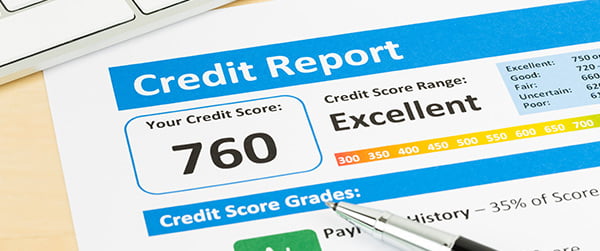5 Ways To Improve Your Credit Score

I hope this email finds you happy and well.
Unless you have been living under a rock, you know that your credit score plays a crucial role in obtaining a mortgage. Talk about credit scores is everywhere – on television ads, in apps, on social media. But how, exactly, does YOUR credit score affect YOUR life?
I’ve seen people hesitate to apply for a mortgage. They may have been declined in the past due to bruised credit, or may they don’t understand how to make credit work for the best results. Do not fear! I am here to bring light and understanding.
Understanding and improving your credit is not difficult, I promise. However, it does take some patience and even restraint. You may have to look at financial restructuring to help you prepare to secure a mortgage for your future dream home.
The first thing to do is obtain a copy of your credit report. https://www.transunion.ca (NOTE: Put in a link to your recommended source for a free credit score) With it in hand, make your way through this checklist to boost your score.
1. Dispute Errors
Mistakes happen, and even small ones can hurt your score. If something isn’t accurate, you can dispute errors online through Equifax and TransUnion.
Rules for Success: Check your credit report once a year. I am happy to review it with you.
2. Negotiate
Let’s face facts. You can’t deny that you stopped paying a credit card bill when you were unemployed last year. But you can ask creditors to “erase” that debt or any account that went to collection. Offer to pay the remaining balance if the creditor will then report the account as “paid as agreed” or remove it altogether. Get the creditor to agree in writing before you make the payment.
Rules for Success: Pay your bills on time, every time, no matter how small the balance. Always make the minimum payment.
3. Check Your Limits
Speaking of checking for mistakes, Ensure your reported credit limits are accurate and not listed as lower than they actually are. You don’t want it to look as though you’re maxing out your limits each month when you’re not. If the card issuer forgot to report your newly bumped-up credit limit, request the update.
Rules for Success: Credit scores are all about ratios. High limits, low balances that are paid on time every time will keep your credit scores high. Some who’ll utilize less than 50% of their credit limit will have a stronger credit score than someone who consistently uses 75% or greater of their credit limit each month. In short, keep your balances BELOW 50% of the limit.
4. Raise Your Credit Limit
Remember, good credit is based on ratios? Ask your creditors to increase your limit. Maintain a high limit with a low balance to achieve a healthy credit score.
Rules for Success: This is the self-control part. Be cautious. A credit card limit of $10,000 is generous as long as you keep your balance low. Never exceed 50% of the limit of your credit card.
5. Diversify the kinds of Credit You Use
Diversifying the kind of credit you use will modestly boost your score. Ideally, you will want to apply for new credit with one of Canada’s charter banks, TDCT, BMO, CIBC RBC, or even American Express if you are a traveler. However, if you are rebuilding your credit, you may need to use other sources for credit approval until such time that a charter bank approves your application request. For example, you might take out a small personal loan or buy a piece of furniture or appliance on an installment plan instead of carrying a credit card balance. Of course, only do this if you’re 100% sure you can and will meet the payment schedule.
Rules for Success: Lenders love to see trade-lines. A trade-line is a report or line item for an individual credit card, a car loan, a personal loan, a mortgage, a line of credit, or a student loan. Ideally, you’d have at least two trade-lines that have been reporting to the credit bureau in good standing for twenty-four months or greater.
Above all, do your best to pay your bills on time, every time. Your payment history, including payments in delinquency, late payments, skipped payments, partial payments, and deferred payments, makes up a whopping 35% of your credit score. Your credit score will improve quickly with good financial habits.
CREDIT SCORES
Credit scores range from 300-900. They breakdown as follows:
300-500: Very Poor
501-579: Poor
580-619: Fair
620-679: Average
680-724: Good. You want to be here to apply for a mortgage!
725-759 Very Good – this is where the average Canadian is.
760-900 Excellent
Elements of the credit score
Payment – how you pay, on time, not so on time,
Amount Owed – just the minimum – or the full balance.
Length of credit history – more than 60 months or less than 24 months, the more mature the credit, the better
New credit – too many recent requests for credit
Types of credit – do you have only easy credit (stores like Walmart, Bay, Canadian Tire), or do you have credit for the charter banks like TDCT, RBC, BMO?
Factors That Lower Credit Scores
High account balances – keep your balances low and your limits high; I say this A LOT!
Opening new credit that is not needed – you need two credit cards and one line of credit, that’s it, that’s all. – Too many consumer finance company accounts, for example – The Brick, Sears, the Bay, Wallmart
Not enough recent revolving account information – maybe you only have one card, this is too little.
High utilization of credit cards and lines of credit – keep your balances low and your limits high – it’s all about the ratios of utilization.
I hope this helps. If you would like to discuss how to improve your credit, pull your credit bureau report and email it to me. I’ll call you so we can review it together and come up with a plan to get you ready!
Life happens; this is a judgment-free zone. I’m happy to help.
If this blog is as clear as mud, call me. I am here to clarity, educate, and support you throughout the process. You may only apply for a mortgage a few times in a lifetime; I process mortgages several times a day. Lean on me.
